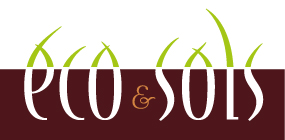Short movies on our research
Food security and climate change
Farmers in Madagascar adopt agro-ecological practices
A video (8 minutes) produced by IRD and the French Global Environment Facility (FFEM). Directed by L. Markiw, Scientific advisors E. Blanchart, T. Chevallier, M. Bernoux. In French with English subtitles
In Madagascar, new farming practices are being introduced to combat climate change and maintain food security in rural areas. The French Global Environment Facility is funding a development project implemented by the IRD, in collaboration with Agrisud International and local farmers. This film shows the collaboration between research, non-government organizations and the local population through the life of a Malagasy family
Farmers in northern Togo take action
A film (6 min 30 sec) by the Research and Development Institut (IRD), the French Global Environment Facility (FFEM), Agronomes et Vétérinaires Sans Frontières (AVSF) and the United Nations Convention to Combat Desertification (UNCCD). Directed by L Markiw and J Fumtim, Scientific advisors: M. Bernoux, T. Chevallier, K. Roesch. In French with English subtitles
In Togo, non-government organizations, farmers and professional associations are joining forces to introduce new farming practices to combat climate change and maintain food security in rural areas. The French Global Environment Facility is funding a development project managed by the French charity, Agronomes et Vétérinaires Sans Frontières (AVSF), and RAFIA, a non-government organization which provides research facilities, support and training for self-development. The project brings together French and Togolese research institutes (IRD and ITRA) and farmers. This film shows the collaboration between research institutes, non-government organizations and the local population through life in a rural community and a farmers’ association.
Integrated crop-livestock farming for maintaining crop diversity
A 9 minute 22 second film produced by the French National Research Institute for Sustainable Development (IRD) in collaboration with the Senegalese Agronomic Research Institute (ISRA) and the International Laboratory for Ecological Intensification of Cultivated Soil in West Africa (Iesol).Director L. Croes, Scientific advisors D. Masse, C. Clermont-Dauphin, L. Cournac, T. Chevallier. In French with English subtitles
The main challenges facing the Sine Saloum region are supporting the economy and maintaining the agricultural diversity. The tropical soils in the region are naturally poor in organic matter and available minerals. Managing organic matter inputs and conserving the carbon stock in these soils are the keys to maintaining their productivity. This film presents the research challenges for increasing the production of biomass mainly by using dung available on the farm or locally.
4 per mille - Soils for food security and climate
A short cartoon (3 minutes) produced by INRA, CIRAD, IRD and CGIAR. In English
Human activities release enormous quantities of carbon dioxide into the atmosphere. This intensifies the greenhouse effect and accelerates climate change.
The world soil contains 2 to 3 times more carbon than the atmosphere. Increasing this storage of carbon by 4 parts for 1000 in the top 30 or 40 cm of the soil could stop the increase of CO2 in the atmosphere. This is the proposal of the "4 parts for 1000, soils for food security and climate"
Measuring soil organic carbon on smallholder farms
This 10-minute video illustrates how to measure soil carbon measure in smallholder systems. CCAFS and IRD developed the video with cooperation from research partners at the Kwame Nkrumah University of Science and Technology in Kumasi, Ghana. In English
In 2016, Gustavo Saiz and Alain Albrecht, co-authored a chapter on reliable and affordable methods used to quantify the measurement of soil carbon stocks in smallholder agricultural systems. This chapter serves as a guide for national agricultural research centers, compilers of national greenhouse gas inventories, policy makers, agricultural development practitioners, universities and the private sector for reporting.
This chapter is available in an open access book (springer.com) called Methods for Measuring Greenhouse Gas Balances and Evaluating Mitigation Options in Smallholder Agriculture, written as part of the Standard assessment of agricultural mitigation potential and livelihoods (SAMPLES) program, a collaboration facilitated by the CGIAR Research Program on Climate Change, Agriculture and Food Security (CCAFS) and carried out with support from CGIAR Fund Donors and through bilateral funding agreements. SAMPLES is a global research program that supports tropical countries to measure greenhouse gas emissions from agriculture and identify mitigation options compatible with food security.
Les vers de terre un atout pour l'agronomie tropicale
Film de 4 minutes réalisé par le centre audisovisuel et multimédia de l'université d'Antananarivo, Madagascar. Conseiller Scientifique Eric Blanchart. In French
Le film présente les recherches sur les impacts des vers de terre sur le fonctionnement du sol et la croissance des plantes.
Animation pour jeune public
Chili con carne
Une animation de 4min37 sur les légumineuses. In French
Réalisation dans le cadre des ateliers d'animation du labex Cemeb par Tiphaine Chevallier et Luis Merino-Martin






